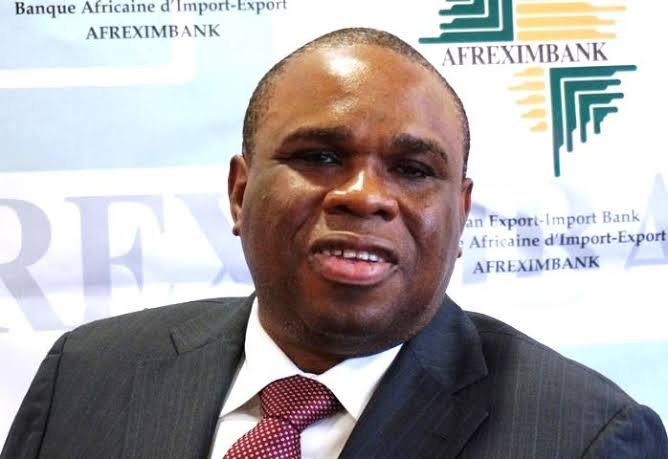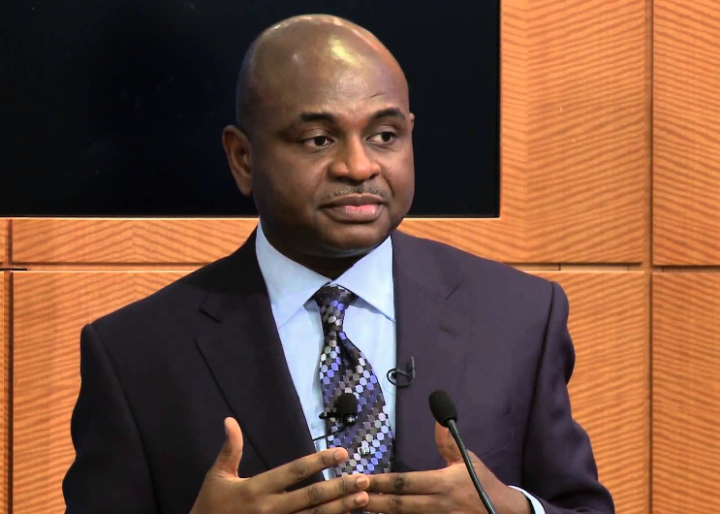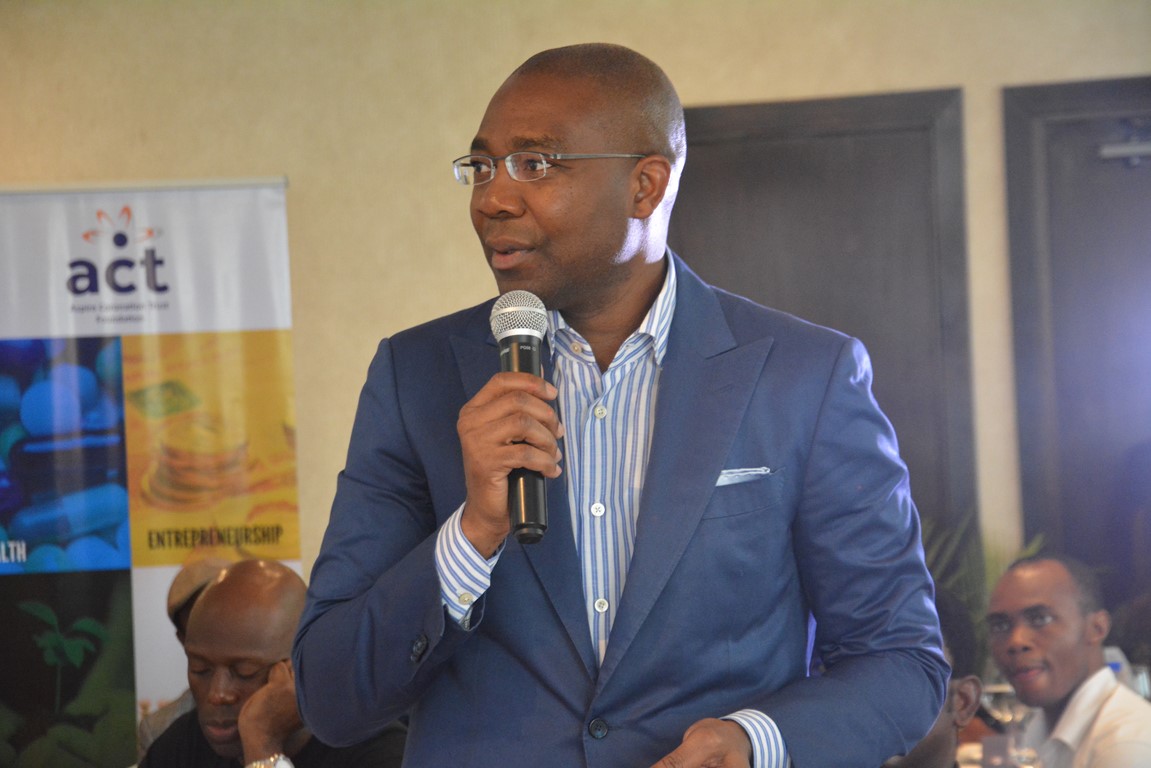Professor Benedict Oramah’s recent articulation of Development Commercial Banking is very compelling. According to him, Development Commercial Banking is “… a careful blend of investment banking and commercial banking aimed at delivering three outcomes, namely positive socioeconomic impact to society, as well as solid financial returns and goodwill to the bank”.
Professor Oramah is the President and Chairman of the Board of Directors of Afreximbank – an important African financial institution. His statement on Development Commercial Banking is weighty, strategic, and timely, and I will tell you why!
Over the years, I have spent some time intellectualising the role of business, particularly banking, in Africa. Initially, it started with an interest in Corporate Social Responsibility. In 2006, together with colleagues, I published one of the first academic papers on CSR in Nigeria, exploring if the practice was driven by indigenous values or an expression of Western mimicry. Although we concluded that the then CSR in Nigeria, which was largely philanthropic, was informed by indigenous values, it also showed some Western influences.
But CSR is beyond philanthropy. Businesses – both small and big –create impacts on society and the environment. These impacts can be negative or positive. In developing countries and emerging markets, the state (i.e., the government) often struggles to govern and controlthe excesses of businesses. In such situations, the government needs to be supported.
Advertisement
Uncomfortable with the then-predominant understanding of CSR in Nigeria as mainly philanthropy, I again worked with colleagues to position CSR as a private governance of corporate externalities (i.e., positive and negative impacts of organisations on society and the environment), which requires some entrepreneurial efforts andinnovation. The book on this, titled Corporate Social Responsibility, Entrepreneurship, and Innovation, was published in 2012 – six years afterwards – by Routledge, USA.
These milestones are important to highlight because the challenge of mainstreaming CSR as a legitimate business discourse stood out for me in this era. No one seemed to take CSR seriously. Even the holistic view of CSR as private corporate governance was hard to sell in an environment where taking advantage of regulatory shortcomings, loopholes, and institutional weaknesses was celebrated as strategic and innovative business moves.
A light bulb moment for me was when Tony Elumelu coined Africapitalism and saw it as a possible way to articulate the private sector’s positive role in Africa’s development. When I came across theidea in 2013, it captivated me.
Advertisement
Firstly, it resonated with my bourgeoning research interest in the broad area of business and society in Africa. Secondly, I was very impressed that a hard-nosed, successful entrepreneur like Mr Elumelu could key into such a society-oriented interpretation of entrepreneurship, which was still largely ignored in Africa. This fortuitous discovery led me to write a piece on Africapitalism as an economic philosophy for the sustainable development of Africa in The Guardian (UK). And the rest is now history.
Following subsequent interactions with Mr Elumelu on Africapitalism, his foundation – The Tony Elumelu Foundation –funded a research project on mainstreaming Africapitalism in the global academe at the University of Edinburgh, which I led. The research produced an academic peer-reviewed journal article and books published by Cambridge University Press – the first of its kind on Africapitalism – and Routledge publishers, respectively. It alsoexpanded Mr Elumelu’s articulation and produced a much more nuanced understanding of Africapitalism, emphasising progress, parity, peace, and place as essential characteristics of a fit-for-purpose-capitalism.
As an idea, Africapitalism is an imaginative articulation of a possible face of capitalism in Africa, which could be extended to other parts of the world. It is a discourse to galvanise a movement which will ultimately change the practice of capitalism in Africa. Positioned as such, Africapitalism becomes an aspiration for Africa’s renaissance – i.e. a force for change. It challenges the status quo – i.e. capitalism in Africa – which has not transformed Africa.
The problem here is not necessarily the spirit of capitalism, as the harbinger of human freedom and economic emancipation, but the inherited form of capitalism practised in Africa, which is often at variance with the continent’s socio-economic development. This misalignment invariably creates lopsided outcomes – e.g. economic banditry, corruption, inequality, poverty, et cetera – which Oramah’s Developmental Commercial Banking will seek to address in Africa.
Advertisement
Putting Africa first is at the heart of Africapitalism. It is an understanding of Africa primarily as a place (not necessarily a market) with meaning and value to people’s identities. It is a form of entrepreneurship that seeks to meet Africa, where the continent is onits development path. Again, this view resonates well with Professor Oramah’s developmental commercial banking idea.
By drawing attention to the importance of place in capitalism, Africapitalism also draws attention to the need to appreciate capitalism fundamentally as an indigenous practice rooted in and influenced by place, as much as capitalism, in turn, influences place. This understanding speaks to Professor Oramah’s antagonism of the negative colonial influences on commercial banking in Africa. No wonder he argues that “…a widespread adoption of Developmental commercial banking practices across Africa will enable the continent to move away from the colonial legacy of commercial banking practice that emphasises short-termism and consumption, instead of, investment financing.“
Today, Africapitalism is making its way, albeit gradually, into the global academe. However, the question remains: how can Africapitalism, as a discourse, be translated into practice? This is where Professor Oramah’s developmental commercial banking idea comes in. However, the idea needs a strong and coherent economic and business philosophy, which Africapitalism provides.
It is pleasing to notice that Professor Oramah also sees the relevance of integrating our educational system in his vision for the development and mainstreaming of Developmental Commercial Banking in Africa. Hence, his proposal for Afreximbank Academy (AFRACAD) to work“…with Wigwe University and perhaps the Africa Capacity Building Foundation (ACBF) in Harare and others to develop a course content and programme that would enable the introduction of Developmental Commercial Banking in African Universities”.
Advertisement
The Tony Elumelu Foundation is also keen to mainstream Africapitalism in the academe. Recently, Harvard Business Schoolpublished a case study on TEF with emphasis on Africapitalism.
Africapitalism and Development Commercial Banking hold a lot of prospects for Africa’s development. But beyond commercial banking, Africapitalism can also inform and shape other businesses and sectors. While it is a good idea to rethink and reform commercial banking for Africa’s development, it is more critical to ensure Africapitalism is well embedded in our educational system – an area of interest I have been championing through research and policy advice.
Advertisement
Mr Elumelu and Professor Oramah are Africonscious entrepreneurswho should collaborate to achieve their mutually compatible goals. In turn, they should be emulated and supported to succeed.
Amaeshi is currently a professor of sustainable finance at the European University Institute, Florence, Italy. He also holds a chair in business and sustainable development at the University of Edinburgh, United Kingdom. He tweets @kenamaeshi and can be reached atkenneth.[email protected]
Advertisement
Views expressed by contributors are strictly personal and not of TheCable.
Add a comment







